- Home
- Perrin Briar
[An Epic Fantasy 01.0] Skip
[An Epic Fantasy 01.0] Skip Read online
Get Perrin Briar’s Starter Library FOR FREE
Sign up for the no-spam newsletter and get SKIP 2, KEEPING MUM, SINK and lots more exclusive content, all for free.
Details can be found at the end of SKIP.
Skip
Book 1
Perrin Briar
Part One
Gentlemen, Tramps and Thieves
Prologue
Nestled in the Fory Valley between a cluster of great mountains was a strange sight. A building, tall and narrow and thin like a bodkin needle, stabbed at the sky. It was black with a single spire. Each side faced either north, south, east or west.
On the side facing west was the biggest clock in the world. The face was round and tinged yellow like aged parchment. At one end the hands were thick as a girder, over twenty feet in length, the tips tapering to a point so sharp it was smaller than the tiniest grain of sand. But as large as the hands were, their movements were as smooth and confident as a choreographed dance, never faltering, never hesitating, and never ever late.
There were dozens of other, smaller clocks on the larger clock’s face, each more different and distinct than the last. One had arms that flew around faster than it took a man to blink, while another gave a small hiss of constant steam that streamed out of the circle that made up the number six. On another, a strange mechanical crocodile-like creature came out at random intervals, peered around as if looking for something, and then disappeared back inside again. No one knew what the dials were for, but all agreed they must have been necessary for some higher purpose. After all, it wasn’t every day you saw a building such as the clocktower.
It was built with a rare twisted metal and rough black stone in a way that confounded modern engineers. The rock had turned an algae green, and clung to the surface like it were growing a beard. Any rain that struck the top and wound down the well-worn rivulets was absorbed by wildlife long before it got to the bottom.
Blue-breasted swallows and red-cheeked finches made their nests high up in the upper ramparts, the chicks’ chirrups unheard by anyone but their parents, who swung in low with practiced ease, flapped against the hard concrete shiny walls and landed in their nests. The chicks quietened after receiving their meal, before beginning to chirrup again.
BONG!
The giant bells rang out, the deep timbre making the air vibrate in all directions, like a nerve that had been struck.
The birds barely stirred. They ruffled their feathers and set to grooming themselves with their beaks. The bell tolled five more times, and the town gathered at the clocktower’s feet began to show signs of life. The small cottages around it were small and hunched over, curve-roofed with fresh thatch from the farms that encircled the town far and wide.
As the sun peeked its head over Doe Mountain, the tower’s shadow came into being like a demon clawing its way out from the gates of hell. Its first port of call was the River Time that swept by to the south. Women and recently-wed girls washed their laundry in the fast flowing water, scrubbing away the previous day’s wear and tear. They chatted like a flock of geese as they soaped, scrubbed, and wrung their linen. They quietened, their movements becoming laggard, and their breath misting in front of their faces. Their fingers turned white, the ice-cold water biting hard. They picked up their washing and moved to the washing lines, frozen fingers fumbling at clothes pegs.
The rhythmic clang of creation at the smithy poked at the early morning calm. Mr Smith, with his long course hair that hung over his eyes and down to his shoulders, held a glowing half-formed horse shoe in tongs in one hand, and a worn hammer in the other. The fire in the forge glowed yellow with heat. Mr Smith wiped the sweat of his face with the crook of his arm, but still he shivered. He paused, setting down his tools. He and looked out the window at the monolithic clocktower, the sun blazing out from behind it.
Mr Smith went over to the fire, his breath still misted in front of his face, and reached for the giant bellows. He pressed down with all his strength and bodyweight. The fire roared and glowed white, but the light that escaped the smithy did not lighten the tower’s shadow.
By early afternoon the fire was placated and the shadow passed over to the south west, where those working in the offices in the centre of town put on their flat caps and overcoats, huddled hermit-like over their desks, only removing their winter gear when the tower chimed five.
By six o’clock the thick-armed lumberjacks were winding up their day, lying their axes against unfallen trunks in the forest to the west of the town. They welcomed the shadow as it swept over them, bathing in its icy shade. They sat and ate dinner together, telling stories and drinking beer. But even they grew cold come seven o’clock, and everyone bid farewell and went home.
As the sun turned its back on the day darkness crept in under a velvet cloak, the moonlight catching the clock face and making it glow like a new pearl. A small figure wrapped up in a worn brown cloak placed a varicose-veined hand on the clock. The pinky and ring fingers were missing. He wore a dozen rings on each remaining finger, covering them from knuckle to tip.
The man looked down on the town below. There was a whirring sound from his right eye, which was covered by a black eye patch.
A cheer rang up from a large building that hugged the ground, far too distant for any normal man’s eyes and ears to perceive. A hundred square black hats with tassels on were tossed up in the air. There was a flicker as the hats rose a split second too fast.
The old man turned to look at the giant clock face. The second hand jolted backward, and then forward.
A man walking down the street below missed his step, appeared a few feet ahead, and then reappeared to finish his previous step before continuing forward. He stopped, scratched his head, and then continued on. The shadows that spilled across the town amidst silver streams of moonlight flickered a tiny fraction before the moon returned to its original positon.
The wind whipped the old man’s cloak, pulling tight over his short round-bellied frame. He looked down on the town, the world, below, everyone woefully unaware of what had just taken place. He turned and was absorbed by the gloomy darkness of the clocktower’s innards.
Time had skipped. And it wouldn’t be the last time. Not by a long shot.
Chapter One
The road leading into town was broad enough for two carriages to ride side by side. Unfortunately, no one could decide which two it should be, so there were always three vying for position.
A dark stranger on the back of a dusty grey gelding weaved between two suicidal carriages and set to a trot. He pulled down the handkerchief from his mouth. It had turned red with dust. Dirt and grease creased the lines of his eyes, giving him the appearance he had some ailment that was crawling across his skin. His sun darkened features made his light eyes pop with vibrancy from his otherwise dishevelled appearance.
He reached in through the collar of his shirt and took out a key on a silver chain, checking it was there for the one-hundredth time that morning. The key was as thick as his finger and had a knot on the end. He held it tight in his hand. The man’s name was Elian Stump.
Elian took off his hat, which had a triangle piece missing along the brim, reached inside, and came out with a pair of ladies’ binoculars. The initials L.H. were engraved down the side in a feminine flowing font. Through them Elian could see the entrances to the town they called Time.
He checked either side of a road and saw figures in white uniforms stop and search a wagon. Elian turned to the next road and saw the same thing. Then he turned to the third road, and saw none of the men in white robes. He smiled and tucked the binoculars away, repositioned his bandana and hat, and took off at a gallop, swerving between the carriages like they were p
art of an assault course.
At the town entrance, Elian hopped off his horse, Fortune, and led her down the muddy street. The local people carried on about their daily chores, too busy to be much concerned with the comings and goings of a single stranger.
A smithy glistened with sweat, his arms as large and as hard as the hammer he bore, working with genuine aggression on the piece before him, beating with a rhythmic CLANG-clang-clang, CLANG-clang-clang, CLANG-clang-clang, never once removing his glare from the smart dapper young man standing opposite him clutching a small bunch of wildflowers. The young man stood beside a comely young woman, whose frown lines matched those of the man hammering, identifying her as his daughter, and the young man an unfortunate suitor.
The baker’s doors opened, and the most delicious smell of fresh bread Elian had experienced in a long time came wafting out. He breathed in the scent and let out a contented sigh. The baker, a rotund woman of barrelish bearing, ducked under the low doorframe and wiped a thick arm across her sweaty brow, letting the putrid faeces-stinking, but cool, town air wrap itself around her heated body. She looked at the stranger, and scowled when he breathed in the bakery’s free heavenly aroma. Elian moved on.
He turned a corner and was immediately arrested by the huge black column rising up from the centre of town. It was so gargantuan that he’d seen it for the last three hours of his six-hour ride, and the closer he got, the further up into the sky it stretched until finally it stopped, for the sole reason, he suspected, of simply having run out of sky.
It did not look real. It was monolithic, ancient and old. A remnant of some forgotten civilisation; a bookend to creation. But just what a giant clock in the middle of nowhere was for, he couldn’t say.
As Elian headed further into town, he was pressed on every side by a wash of the great unwashed. Men in rags begged for change with their shredded fingernails, but averted their gaze when gentlemen of the elite came within view, who in turn allowed their own eyes to see through the beggars as if they weren’t there. It was a perfectly choreographed dance that protected both men from shame. It would have been a gas if it hadn’t been so tragic.
Across the road Elian spied a Northern delicacy – lean pork wrapped in a blanket of dough. He felt his mouth salivate, and without thinking, stepped out into the street. He knew his mistake immediately.
The ground shook, and a wheel as tall as a grown man trundled past. Elian pulled his body back at the last split second, sucking in his stomach and holding his arms out to either side. The wheel missed him by no more than a centimetre.
The team of four horses that pulled the gigantic coach were monsters, the biggest draft horses he had ever seen: twice the size of Fortune, and four times as ugly. One back leg could have fed a large family for a month. They had long black manes that slithered down their backs like spilled blood, and around their flanks and shoulders were great jagged welts where they had been cut with a rusty blade.
Elian looked down at his muddied boots and felt hot bile reach up into his throat and bubble against his tonsils. He felt his fingers twitch toward the pistol in his saddlebag, but he calmed himself with deep controlled breaths.
“Some people think they own the roads,” Elian muttered as he wiped the mud off his boots.
The coach itself was gilded red and gold, and was shaped like an overripe onion, too wide around the base and narrow at the top. No other carriage dared battle with it, and swerved out of the way for good measure. It was big and solid and impenetrable. A fortress on wheels. It had an emblem of a shark consuming another shark embossed on the back, and elegant gold lettering wrapped around its base that said, ‘Ascar’.
Elian reached up and put the handkerchief back on around his face, concealing it. He’d just lost his appetite.
Chapter Two
The great grassy plain was an emerald green, tufts of jade drawn on its surface like sprigs of holly. The barren land was a lifeless brown and stretched from the north to the south-east, stopped only by the Dreary Mountains to its west, and the brackish brown of Drunkard’s Sea to the east.
On the opposite coast to the west, the seas were turquoise blue, where it was said the sea was so clean and fresh it was fit only for the gods to bathe in. To the land’s north and south were dark stormy waters and icy tundra where fishermen feared to venture, and only the great white bears and their cubs deigned to play.
And then there were the cities and towns, scattered across the land like tossed marbles, full of culture and learned men. In the centre of the map, the largest of all cities: the Capital, with all its castles and history and culture, the unquestioned gem of human development.
Jera circled every inch of the map with red ink, ink that had been extracted from the Petagonia tree that grew only in the upper reaches of the tallest mountains, and then she drew a route through them all, hopping from one area to the next in black ink that had been distilled from the live tear ducts of the Dacylus squid in the deepest, darkest and near-impenetrable recesses of Drunkard’s Sea.
“You’re looking at the map again?” a voice said.
Jera started, and looked up to see her sister Kali standing in the doorway.
Kali was by far the more beautiful of the two sisters. She had the long lithe limbs of an athlete and blonde hair that fell past her shoulder blades. Today she wore a long silk dress that exposed her graceful lines. In her ears were small pearl earrings, and along her arms satin gloves that cupped her elbows. She was a goddess in mortal skin.
“I was just looking,” Jera said.
Jera on the other hand was ‘almost’ Kali, as if God had created her from the same clay as Kali but then taken her out of the oven too soon. She was tall, but not statuesque, her hair long but stopped at the shoulder blades. Her hair was also blonde, but not a perfect shade: it was streaked with natural brown highlights. Her body consisted of lines and not the effortless feminine curves of her sister. Beside anyone but Kali she would have been a beauty, but the problem was she was always beside her twin sister.
Kali shook her head and walked into Jera’s bedroom. It was large and open with few decorations. The front opened out onto a wide balcony, giving on to views of the wide blue sky and green lawn below. Kali gave the outside world a fleeting glimpse before falling onto the bed beside Jera. She pulled the map spread over the bedspread toward herself.
“Go on then,” Kali said. “Tell me about your plan.”
“Why?” Jera said. “You’ve heard it a dozen times already.”
“I know. But I like to hear you talk about it.”
Jera beamed.
“Okay,” she said.
She pointed to a collection of green bumps on the map.
“Well, you’ve got to go to the Dreary Mountains in the east and hike to the peak of Mount Pleasant, and it’s best to work your way down to the east coast. Then you could surf the tide of No Hope and pass through to the Icy Tundra in the north.”
“Brr,” Kali said, rubbing her bare arms. “I feel cold already.”
“And then you could go through the Great Plains,” Jera said, “and live with the indigenous centaurs for a while.”
“Without hot water on tap and silk blankets? Not likely! How can a set of twins grow up to be so different, do you think?”
Jera shrugged.
“One of us had to have all the right influences,” she said.
“Yes, but where does that leave you?”
The sisters shared a smile. Jera turned back to the map.
“Then I’d hike through the Rumble Jungle until I got to the Ice River,” she said. “I’d hire a boat and sail down it until it dives underwater into the underground caves. I’d disembark and cross this small patch of desert until I arrived at the Capital.”
“It’d be a great adventure,” Kali said. “I wish you could do it.”
“Maybe we could do it together.”
“After we’re married? I don’t think that would go down very well.”
“We don’t
have to get married.”
“Maybe not,” Kali said. “But I could never live without all this.”
Kali waved her hand, gesturing to the room, the house, around them. Giant white pillars held up the arched roof, the ivy mouldings looping around them. The fireplace was large and wide, the mantelpiece supporting landscape images.
“It’s just stuff,” Jera shrugged. “It’s not important.”
“Keep those thoughts to yourself. You know what Mother would say if she heard you talking like that.”
Kali got to her feet and smoothed down her dress.
“You need to get ready,” she said. “They’ll be here soon.”
“Are you excited?” Jera said.
Kali smiled.
“Words cannot express,” she said.
“They probably can. You just probably don’t know them.”
“True. All right then, my words cannot express. But yours probably could.”
Kali got a misty look in her eye.
“Gregory is a dream,” she said.
“I guess.”
“Richard isn’t bad either, you know.”
Jera rolled her eyes.
“How would you know?” she said. “Neither of us have seen him in years.”
“Don’t be so hard on him. He’s going to be your husband in one month. Gregory said he’s a good man, who does many good things.”
“I’m sure he does, but I don’t know him.”
“That’s why he’s coming. To get to know you.”
“Do you remember that awful haircut he used to have? The curtains?”
Jera brushed her bangs forward so they covered her eyes and peered through them at Kali, who laughed and covered her mouth with her hand.
“Stop!” she said.
“It’s not fair,” Jera said. “Richard and I are going to be so awkward together, I know it.”
“You won’t know till you see him today.”

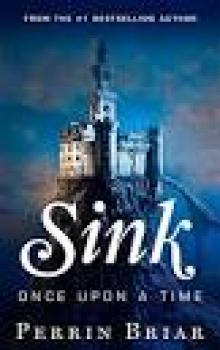 Sink: Once Upon A Time
Sink: Once Upon A Time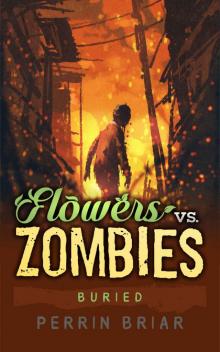 Flowers Vs. Zombies (Book 5) Buried
Flowers Vs. Zombies (Book 5) Buried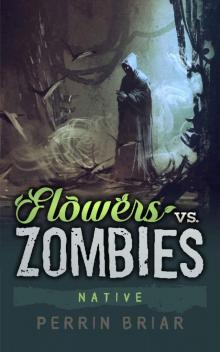 Flowers Vs. Zombies (Book 6) Native
Flowers Vs. Zombies (Book 6) Native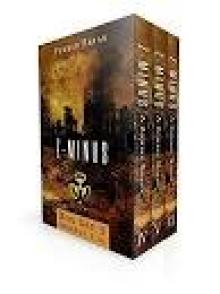 Z-Minus Box Set 2
Z-Minus Box Set 2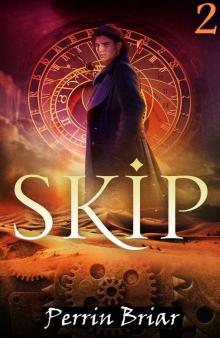 Skip: An Epic Science Fiction Fantasy Adventure Series (Book 2)
Skip: An Epic Science Fiction Fantasy Adventure Series (Book 2) Resistance (Book 1): Juvenile
Resistance (Book 1): Juvenile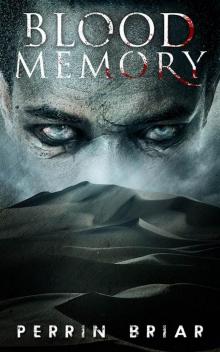 Blood Memory: A Post-Apocalypse Series (Book Five)
Blood Memory: A Post-Apocalypse Series (Book Five)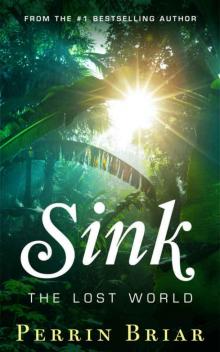 Sink: The Lost World
Sink: The Lost World![Z-Minus Box Set [Books 1-3] Read online](http://i1.bookreadfree.com/i1/03/30/z-minus_box_set_books_1-3_preview.jpg) Z-Minus Box Set [Books 1-3]
Z-Minus Box Set [Books 1-3]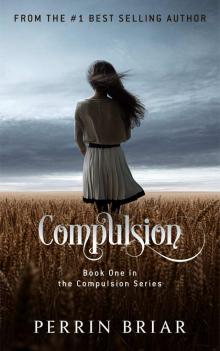 Compulsion
Compulsion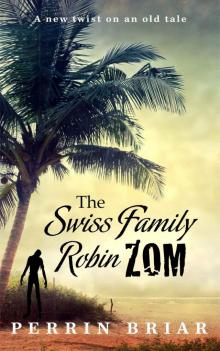 The Swiss Family RobinZOM (Book 3)
The Swiss Family RobinZOM (Book 3)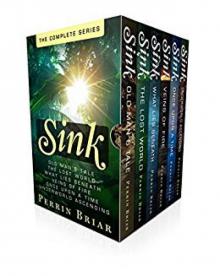 Sink: The Complete Series
Sink: The Complete Series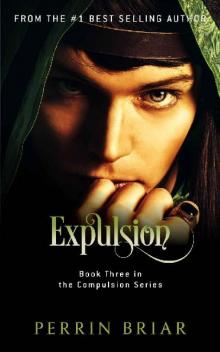 Expulsion
Expulsion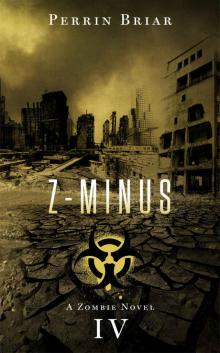 Z-Minus (Book 4)
Z-Minus (Book 4)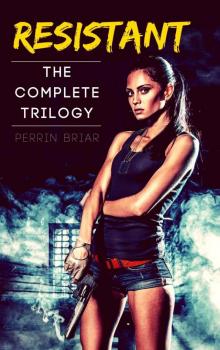 Resistant Box Set
Resistant Box Set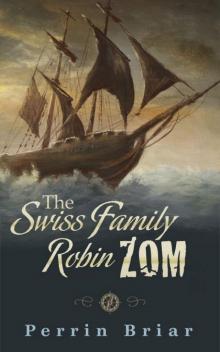 The Swiss Family RobinZOM (Book 2)
The Swiss Family RobinZOM (Book 2)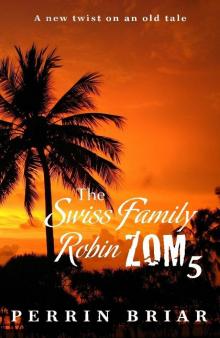 The Swiss Family RobinZOM (Book 5)
The Swiss Family RobinZOM (Book 5)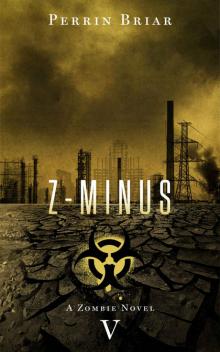 Z-Minus (Book 5)
Z-Minus (Book 5) Resistance (Book 2): Resistant
Resistance (Book 2): Resistant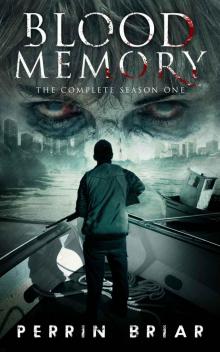 Blood Memory: The Complete Season One (Books 1-5)
Blood Memory: The Complete Season One (Books 1-5)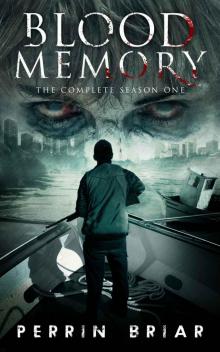 Blood Memory (Season 1): Books 1-5
Blood Memory (Season 1): Books 1-5 Flowers Vs. Zombies: The Complete Series
Flowers Vs. Zombies: The Complete Series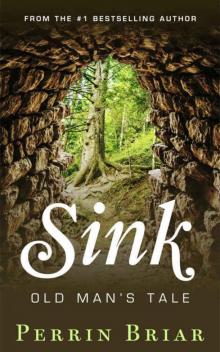 Sink: Old Man's Tale
Sink: Old Man's Tale![Cut Off [Part 1] Read online](http://i1.bookreadfree.com/i2/04/06/cut_off_part_1_preview.jpg) Cut Off [Part 1]
Cut Off [Part 1]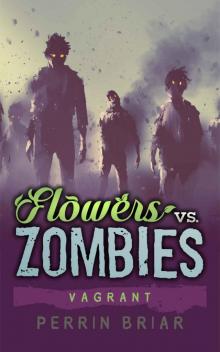 Flowers vs. Zombies (Book 2): Vagrant
Flowers vs. Zombies (Book 2): Vagrant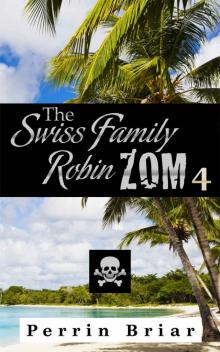 The Swiss Family RobinZOM (Book 4)
The Swiss Family RobinZOM (Book 4)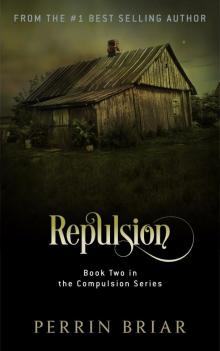 Repulsion (Compulsion Book 2)
Repulsion (Compulsion Book 2)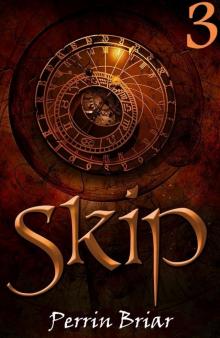 Skip: An Epic Science Fiction Fantasy Adventure Series (Book 3)
Skip: An Epic Science Fiction Fantasy Adventure Series (Book 3)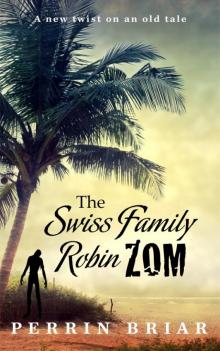 The Swiss Family RobinZOM
The Swiss Family RobinZOM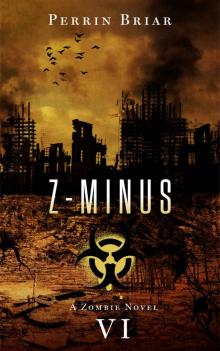 Z-Minus (Book 6)
Z-Minus (Book 6)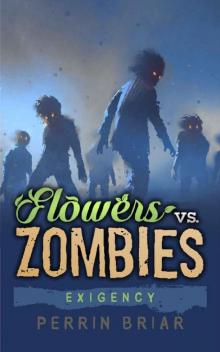 Flowers vs. Zombies (Book 4): Exigency
Flowers vs. Zombies (Book 4): Exigency![[An Epic Fantasy 01.0] Skip Read online](http://i1.bookreadfree.com/i2/04/12/an_epic_fantasy_01_0_skip_preview.jpg) [An Epic Fantasy 01.0] Skip
[An Epic Fantasy 01.0] Skip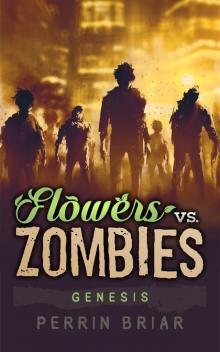 Flowers Vs. Zombies: Genesis
Flowers Vs. Zombies: Genesis